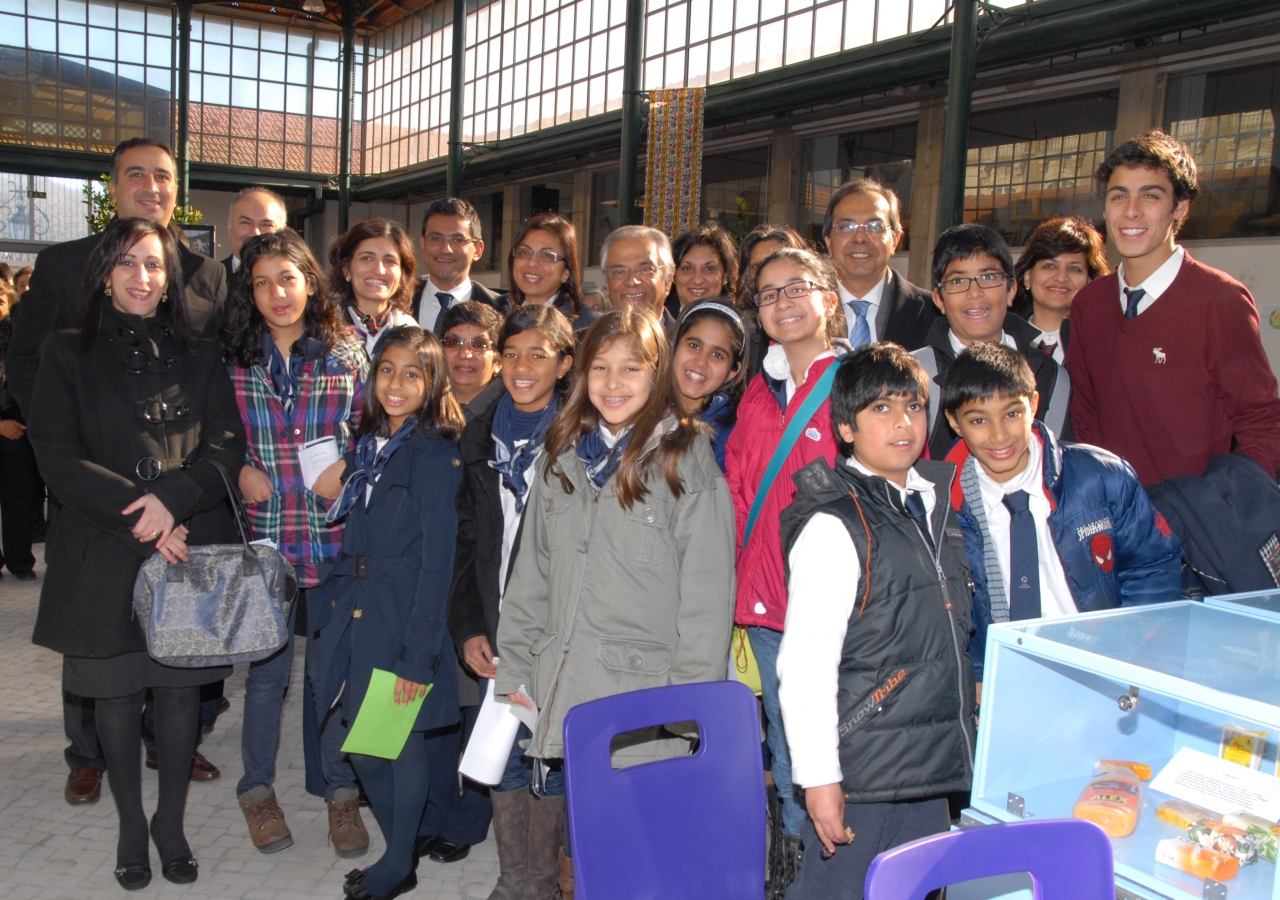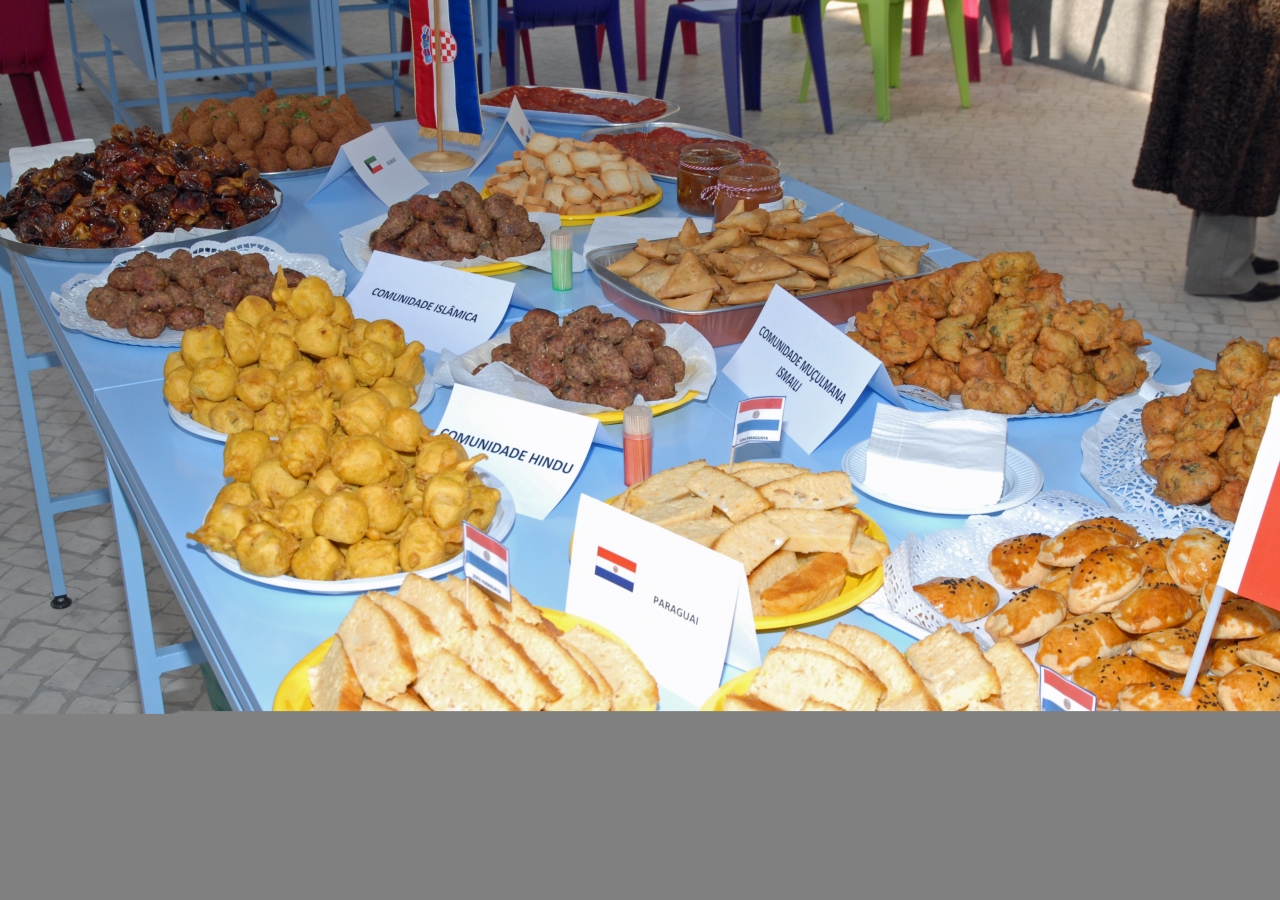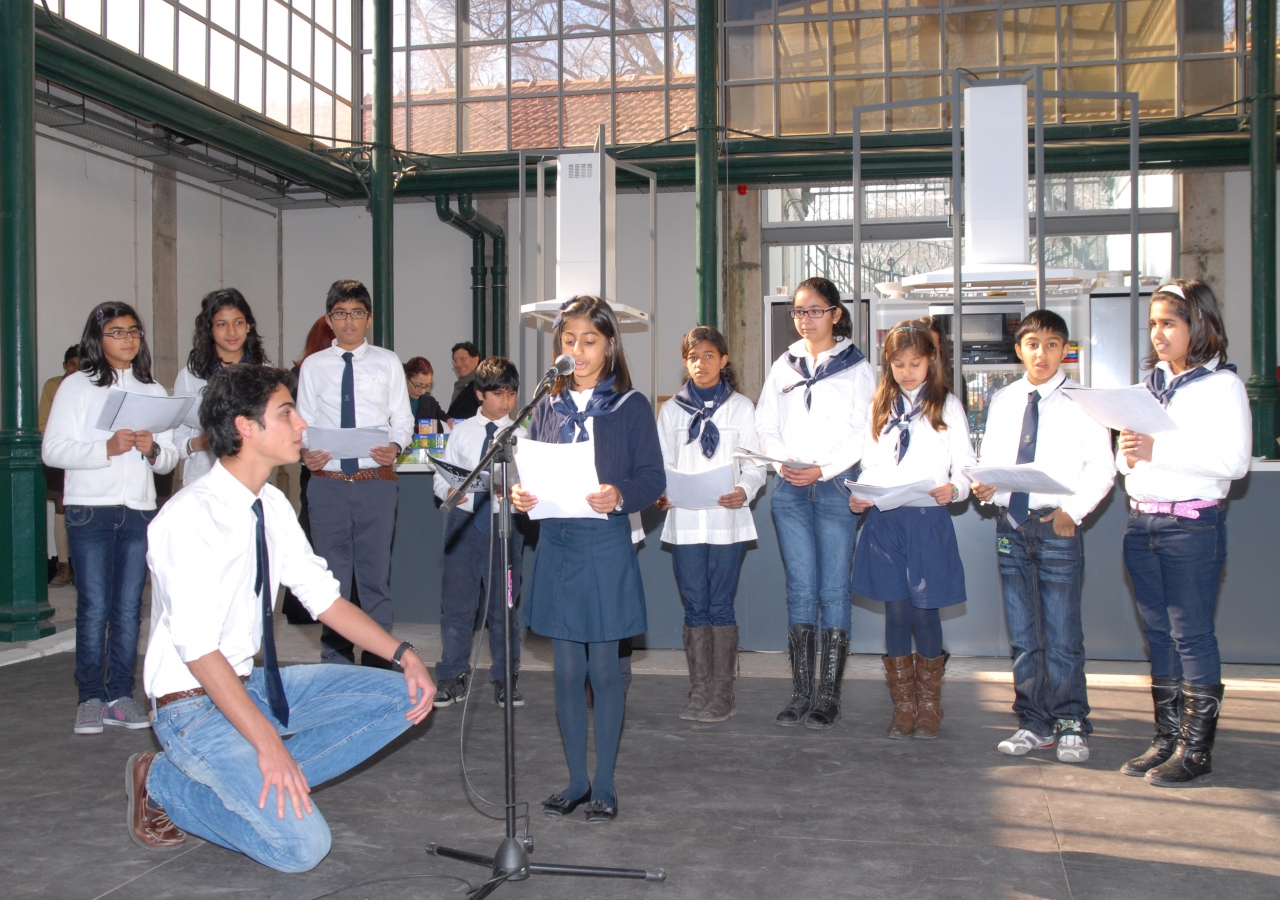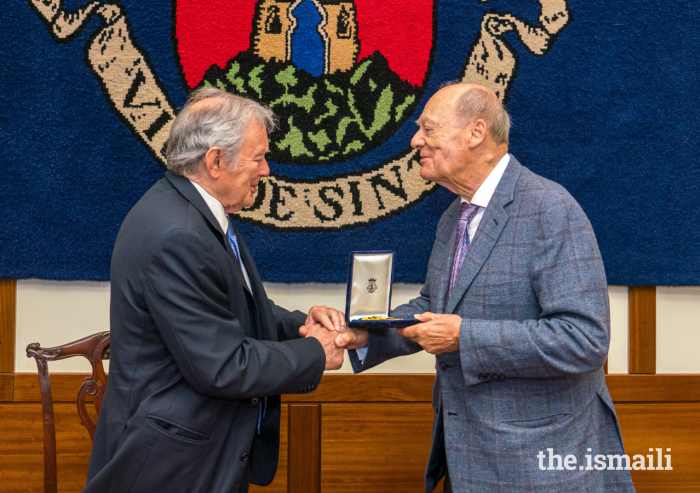Spread across the breakfast table were the colours and flavours of many countries around the world – from Morocco to Turkey; Angola to Portugal. Part of an event celebrating World Interfaith Harmony Week, each meal was representative of a different culture, a different people.
World Interfaith Harmony Week is observed around the world each year during the first week of February. Proposed at the United Nations General Assembly by His Majesty King Abdullah II of Jordan in September 2010, it was adopted unanimously by the UN shortly thereafter.
In Portugal, a country that is recognised for promoting dialogue among faith groups, the UN Alliance of Civilizations, together with a number of religious organisations, sought to present a unique multicultural perspective for World Interfaith Harmony Week. Children of different faiths and belief groups were asked to describe how they see one another, and how they perceive themselves in the society in which they live.
The result was an art exposition. Drawings, pictures, and poems were some of the mediums used by the children to express their feelings. Their work filled the Santa Clara Market in historic Lisbon, showing how the world is seen differently in the eyes of children.
Jorge Sampaio, the UN Secretary-General's High Representative for the Alliance of Civilizations, said that the exhibition was determined not to see religion trivialised by acts of violence. It provided a positive example, “especially in an era of crisis and recession, of the enormous wealth contained in the diversity of cultures and pluralism of beliefs,” he added, speaking at an event in Lisbon marking World Interfaith Harmony Week.
The Ismaili Muslim community was one of 15 religious traditions represented at the event, and the shared mutual respect among the faith groups was apparent.
Noting the presence of so many young people from various communities, guest speaker Amirali Bhanji, President of the Ismaili Council for Portugal, impressed upon them the importance of spreading a message of unity as “builders of the society to which we aspire.” The recognition by all religious communities of their common values, said President Bhanji, is key to fostering cooperation: “To come together in the pursuit of common objectives, of well-being and quality of life of individuals, contributing to the strengthening of society as a whole.”
The potential for interfaith cooperation is strengthened by a framework of agreements between the Catholic Church in Portugal and the institutions of the Ismaili Imamat. For example, with the support of the Ismaili community, the Patriarchate of Lisbon and the Aga Khan Foundation Portugal – an agency of the Aga Khan Development Network – have established a number of social welfare and education initiatives that target the most vulnerable members of Portuguese society, as well as in Portuguese-speaking countries like Mozambique.
Together with participants from other communities, young Ismaili Ta'lim (religious education) students exhibited their work at the Santa Clara market. Ismaili volunteers and Scouts also contributed to organising the event.
Young Ismailis also took part in the stage performance Children of all Colours. A performer named Zahra said she was nervous more because of the “importance of the message” than “the many people watching.”
"We are taught that although different, we are all equal in the eyes of Allah,” Zahra said.
This vision of unity amidst human diversity is a central theme of the Ta'lim curriculum that is taught to Ismaili children in Portugal and around the world. The performance won admiration and praise from those present, who commented that the inclusive and peaceful outlook is reflective of the ethics of Islam and the leadership of the Ismaili Imam.










